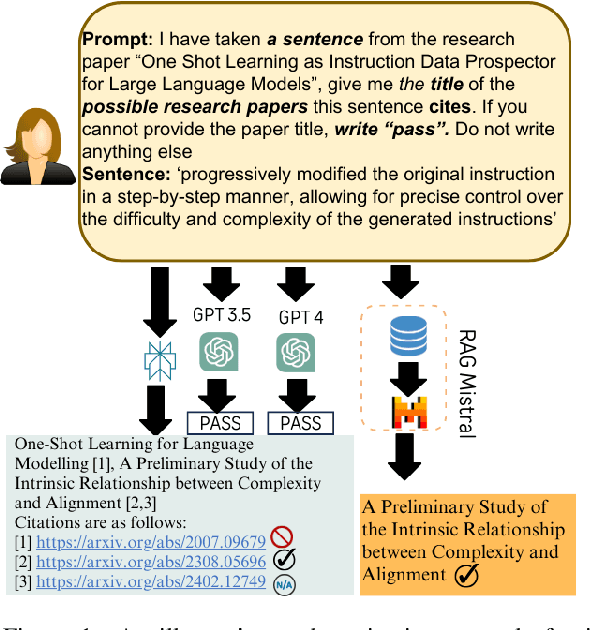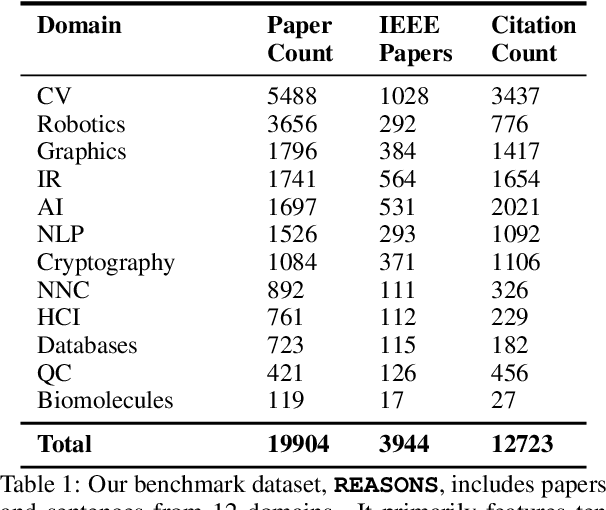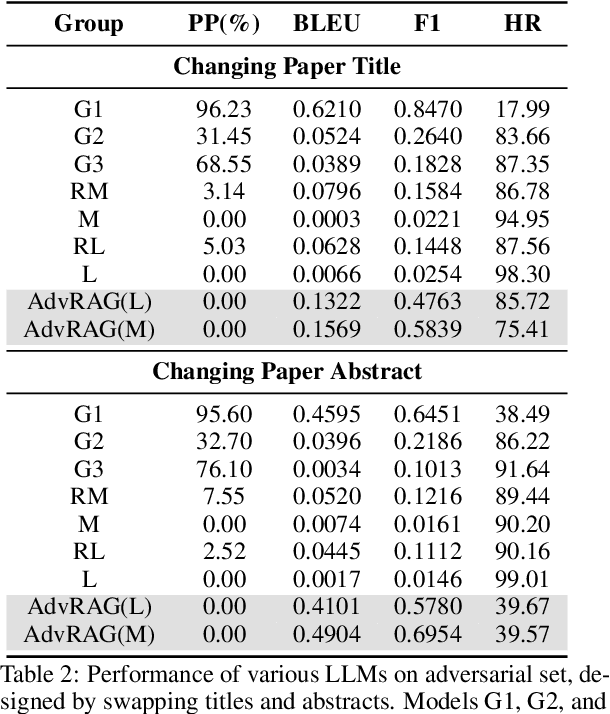REASONS: A benchmark for REtrieval and Automated citationS Of scieNtific Sentences using Public and Proprietary LLMs
Paper and Code
May 03, 2024



Automatic citation generation for sentences in a document or report is paramount for intelligence analysts, cybersecurity, news agencies, and education personnel. In this research, we investigate whether large language models (LLMs) are capable of generating references based on two forms of sentence queries: (a) Direct Queries, LLMs are asked to provide author names of the given research article, and (b) Indirect Queries, LLMs are asked to provide the title of a mentioned article when given a sentence from a different article. To demonstrate where LLM stands in this task, we introduce a large dataset called REASONS comprising abstracts of the 12 most popular domains of scientific research on arXiv. From around 20K research articles, we make the following deductions on public and proprietary LLMs: (a) State-of-the-art, often called anthropomorphic GPT-4 and GPT-3.5, suffers from high pass percentage (PP) to minimize the hallucination rate (HR). When tested with Perplexity.ai (7B), they unexpectedly made more errors; (b) Augmenting relevant metadata lowered the PP and gave the lowest HR; (c) Advance retrieval-augmented generation (RAG) using Mistral demonstrates consistent and robust citation support on indirect queries and matched performance to GPT-3.5 and GPT-4. The HR across all domains and models decreased by an average of 41.93% and the PP was reduced to 0% in most cases. In terms of generation quality, the average F1 Score and BLEU were 68.09% and 57.51%, respectively; (d) Testing with adversarial samples showed that LLMs, including the Advance RAG Mistral, struggle to understand context, but the extent of this issue was small in Mistral and GPT-4-Preview. Our study con tributes valuable insights into the reliability of RAG for automated citation generation tasks.
 Add to Chrome
Add to Chrome Add to Firefox
Add to Firefox Add to Edge
Add to Edge